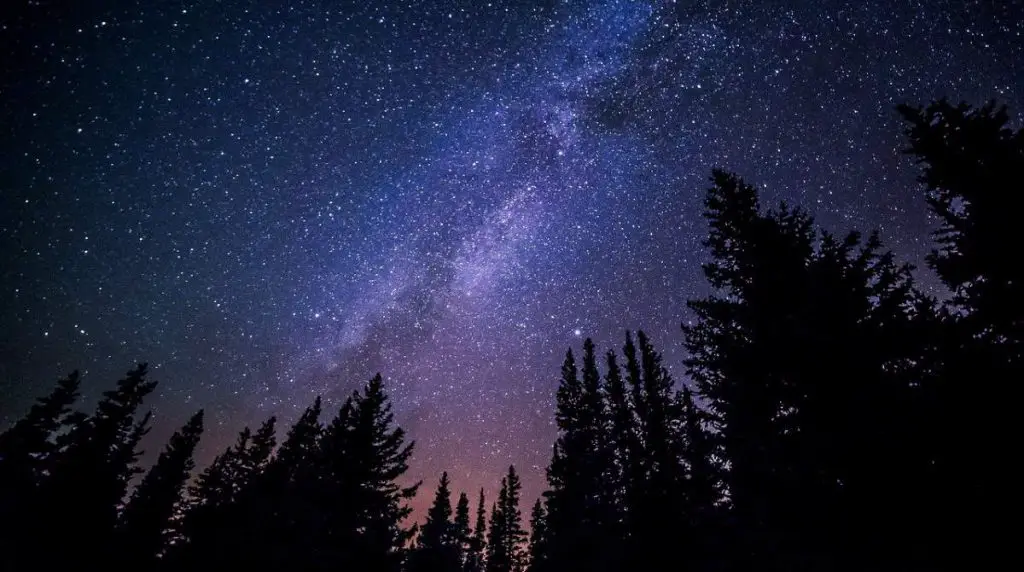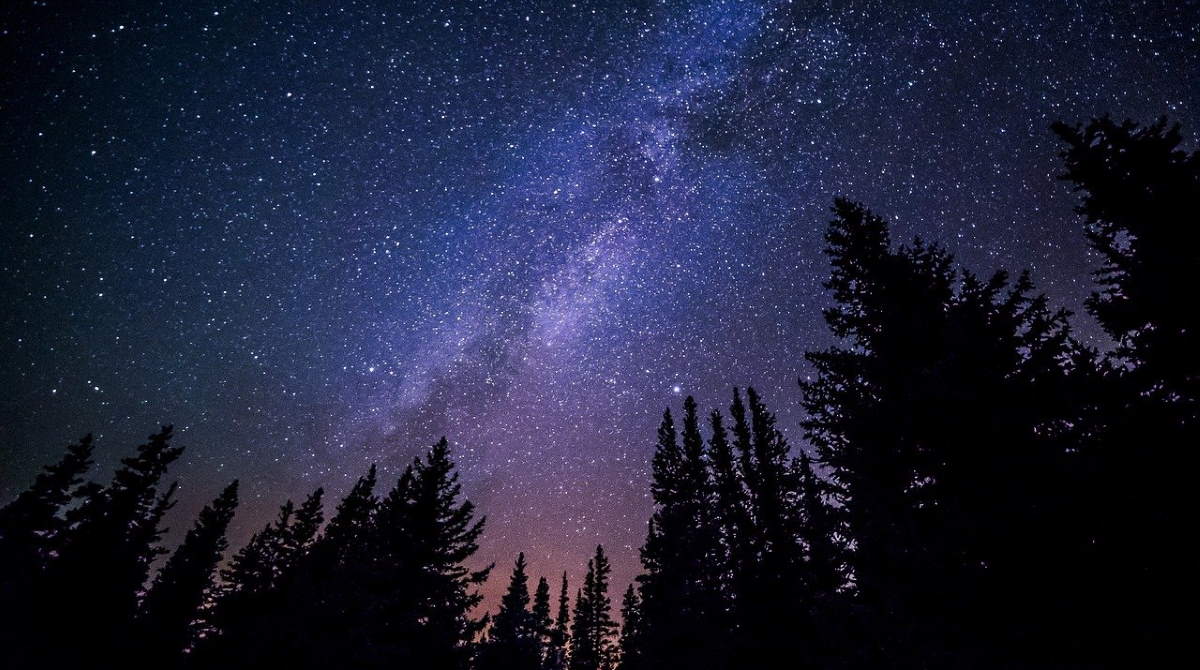When you look up in the sky on a cloud-free night, you see many thousands of stars, if you are not in a light-polluted area, of course. One thing you’ll quickly notice is that the stars twinkle, while the planets do not.
Why do stars twinkle?
The stars twinkle due to atmospheric refraction. This refraction (the small changes in the direction of light) is caused by the various temperature and density layers in Earth’s atmosphere.
Earth’s atmosphere is changing continuously. There are always changes in temperature and density between many layers of the atmosphere. These changes disturb the light coming from space.
Stars are huge, sure, but they are very far away from our planet. They are basically just shining pinpoints in the sky. Even if you look at a star through the biggest telescope on Earth, you still just see a tiny point of light. That’s why the Earth’s atmosphere can easily disturb the light of a star.
Planets, on the other hand, way smaller than the stars, but they are also much closer to Earth. So, they do not appear not as pinpoints as stars do. They appear actually as small discs in the sky.
Atmospheric refraction basically causes the light to zig-zag. While the light from one edge of a planet’s disk “zigs” one way – light from the opposite edge might “zags” in an opposite way. Overall, these zigs and zags neutralize each other, and as a result, planets shine much more steadily than the stars.
Do stars twinkle in the Moon’s sky?
Since the Moon does not have any atmosphere (see notes 1), the light of the stars reaches an observer on its surface undisturbed. So, stars do not twinkle at all in the Moon‘s sky. Or, generally, in space.
Notes
- Moon’s atmosphere is a very scant presence of gases surrounding it. For most practical purposes, our satelite is considered to be surrounded by vacuum.

Sources
- Why do stars twinkle but planets do not? on Vedantu.com
- Why do stars twinkle, but planets don’t? on the Earth & Sky website
- How Many Elephants are Left in the World in 2025? - August 17, 2025
- Moon Landings: All-Time List [1966-2025] - February 2, 2025
- What Is Max-Q and Why Is It Important During Rocket Launches? - January 16, 2025

